
Oli Dugmore 4am - 7am
9 June 2021, 15:53 | Updated: 9 June 2021, 16:03
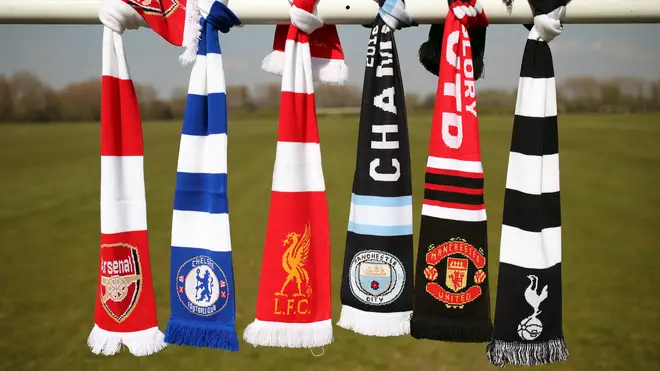
The 'big six' English football clubs which attempted to join the controversial European Super League will pay £22 million between them as part of a settlement reached with the Premier League.
Arsenal, Chelsea, Liverpool, Manchester City, Manchester United and Tottenham announced themselves as founder members of the competition on 18 April but all clubs withdrew just three days later following widespread outrage.
Fans staged large protests against the plans, while the Premier League, UEFA, FIFA and even the British Government came out against the decision.
READ MORE: Boris Johnson hails withdrawal of England clubs from European Super League
The clubs will reportedly face a further £25million fine and 30-point deduction if there are further attempts to break away.
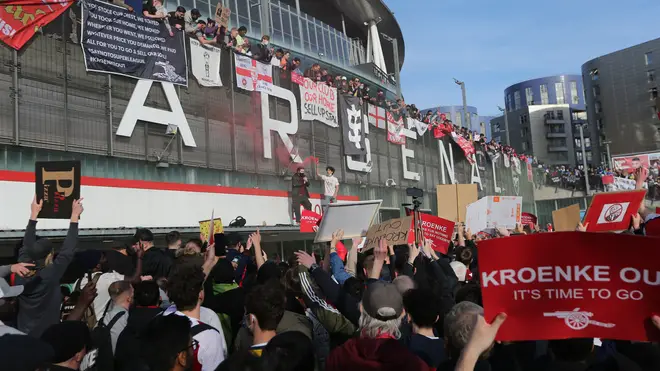
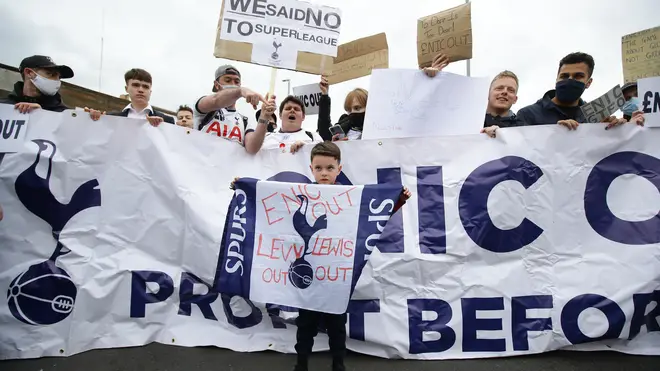
It is understood the money will go to grassroots and community projects, rather than to other Premier League clubs.
A statement from the Premier League said: "The six clubs involved in proposals to form a European Super League have today acknowledged once again that their actions were a mistake, and have reconfirmed their commitment to the Premier League and the future of the English game.
"They have wholeheartedly apologised to their fans, fellow clubs, the Premier League and The FA. As a gesture of goodwill, the clubs have collectively agreed to make a contribution of £22million, which will go towards the good of the game, including new investment in support for fans, grassroots football and community programmes.
"Furthermore, the clubs have agreed to support rule changes so that any similar actions in the future would lead to a 30-point deduction. Each of the six clubs, in that event, would also be subject to an additional £25m fine.
EXPLAINED: What is the European Super League and why is it so controversial?
"The Premier League and The FA have worked closely together throughout this process and this agreement brings both investigations into the matter to a conclusion."
The FA is understood to be working with Government on strengthening its powers in relation to UK competition laws after senior sources at the association admitted it was "50-50" whether any legal attempt to block the breakaway would have succeeded.
The Premier League peace deal follows a similar one struck between nine of the original 12 Super League clubs and European football's governing body UEFA.
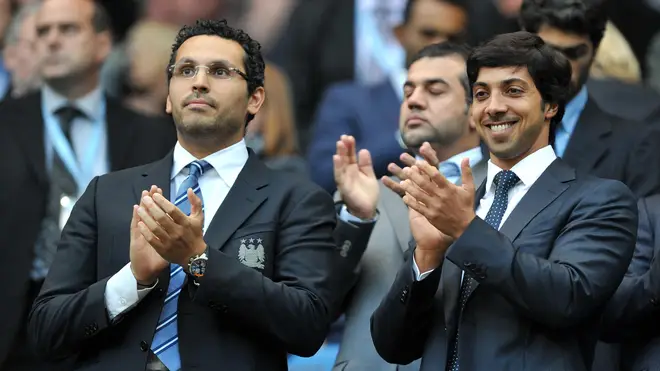
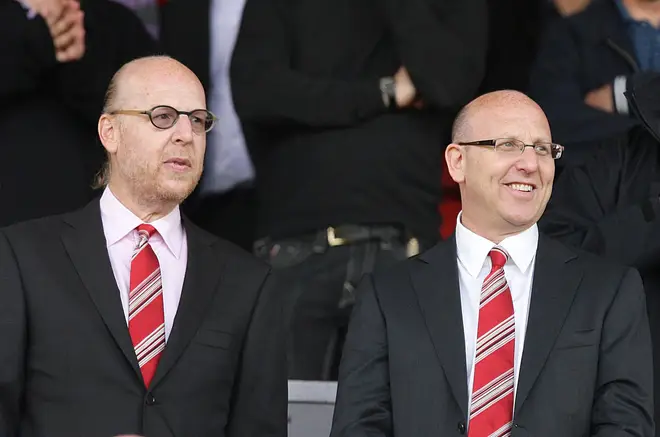
It announced a 'Club Commitment Declaration' on 7 May, effectively tying the clubs to existing domestic and international competitions with the threat of €100m (£87m) fines each if a future breakaway was attempted.
The clubs agreed to pay a combined 15 million euro (around £13m) goodwill contribution to benefit children's football and the grassroots game, and the withholding of five per cent of any UEFA competition revenue due to them for one season, to be redistributed among other clubs.
The Glazer family and Fenway Sports Group agreed to cover these costs related to Manchester United and Liverpool respectively. It is understood FSG will cover Liverpool's share of the Premier League settlement too, which amounts to £3.7million.
Malcolm Clarke, the chair of the Football Supporters' Association, said: "Whatever punishment the Premier League's in-house process decides upon, it cannot guarantee that clubs won't try similar again in the decades ahead.
A statement from the Premier League said: "The European Super League's legacy should be a total restructure of the game - an independent regulator, genuine power to fans, and wealth redistribution."
Former United defender Gary Neville, a staunch opponent of the Super League, tweeted in reaction to the news of the settlement, describing it as "an absolute embarrassment".
The three clubs who have still not renounced the Super League - Real Madrid, Barcelona and Juventus - have had disciplinary proceedings opened against them by UEFA, with reports suggesting a Champions League ban is possible.
Those clubs have though mounted legal moves in their defence, claiming UEFA was in violation of European Union competition law in attempting to block the league and in threatening to sanction them.